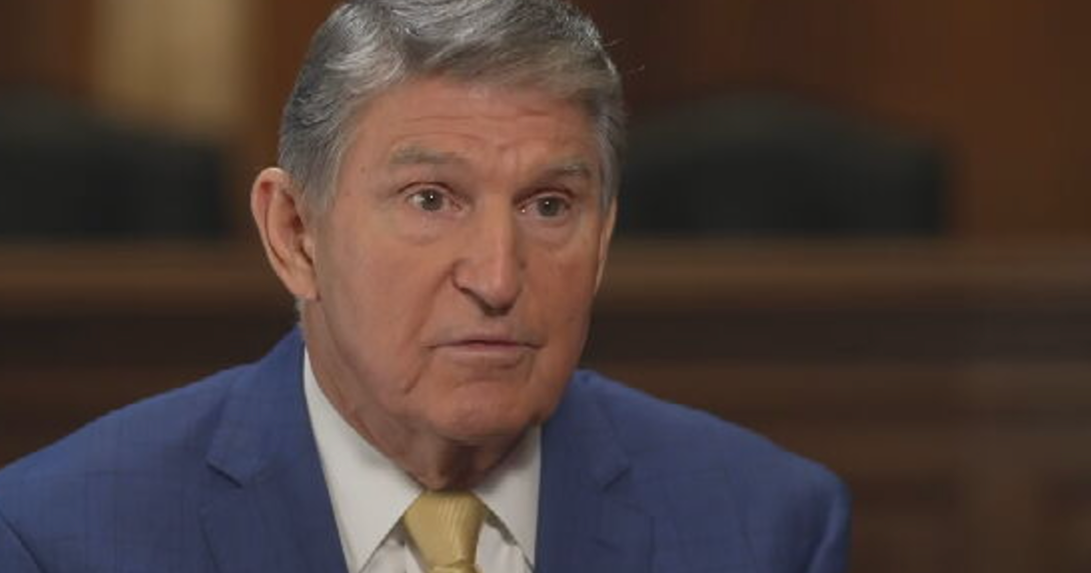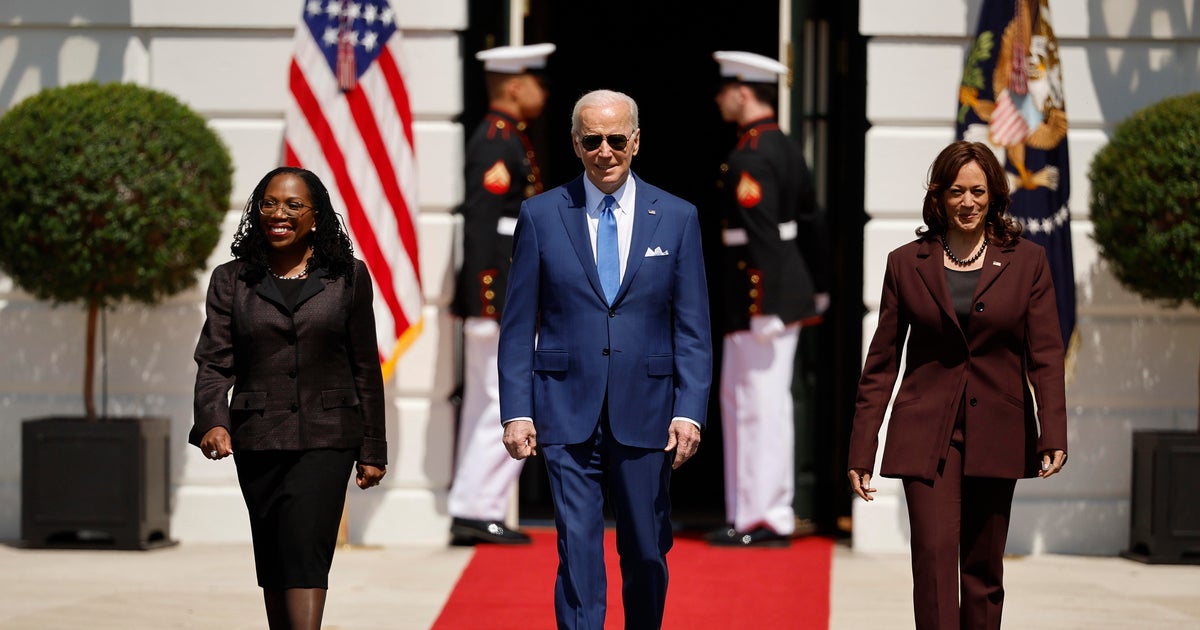Martha McSally: Prevalence of sexual abuse in military is a national security threat
A hearing on sexual assault in the military Wednesday was personal for Sen. Martha McSally. The freshman Arizona Republican revealed before the Senate Armed Services Committee she had been raped by a superior officer while serving in the Air Force.
In her first interview since coming forward with the revelation, McSally told "CBS This Morning" co-host Norah O'Donnell she spoke out to "give the perspective of why I am advocating so strongly for women in the military." A portion of the interview will air Thursday on "CBS This Morning," with more of McSally's comments airing Friday.
"If anybody last night or 50 years ago has also been through a sexual assault, I just want to give them some hope. I want to shine a flashlight for them, that today can be a new day. That they can find some healing in their own lives," McSally said. "They can find their own purpose and not be held back and not be stopped from fulfilling all of their potential in life because of the awful things that they were victimized from. Don't let your assaulter rob you of your future. Don't do it."
"It's not just as a commander that I speak, but it's as a survivor that I just felt I needed to talk about it but it isn't about me. I wanted to give the perspective of why I am advocating so strongly for women in the military and why I'm advocating that the command chain has to step up and do their job to rid us of sexual assault," McSally said.
McSally, appointed to the Senate in December, is a 26-year military veteran and was the first female fighter pilot to fly combat missions. She said speaking about her assault in such a public forum brought back "the very real memories and the realities of it." But she's glad she did it. She also said she believes the prevalence of sexual assault and abuse in the military is a national security threat.
"I don't want people to think, like, well maybe it's just all these problems we have now that there are women in the military. Think about it – if you have a predator, if you have a rapist who is serving in uniform, you don't deal with it by keeping a woman out of their unit. Because that predator is going to go assault someone else," McSally told O'Donnell.
During Wednesday's hearing, McSally said she did not report the crime at the time because she did not trust the system, saying she felt ashamed and confused. She did not name the officer who she said raped her.
"I stayed silent for many years, but later in my career, as the military grappled with the scandals, and their wholly inadequate responses, I felt the need to let some people know I too was a survivor," she said, choking up as she detailed what had happened to her. "I was horrified at how my attempt to share generally my experiences was handled. I almost separated from the Air Force at 18 years of service over my despair. Like many victims, I felt like the system was raping me all over again."
McSally's revelation comes soon after Republican Sen. Joni Ernst of Iowa detailed her own abuse and assault, and at a time of increased awareness of harassment and assault in the armed forces. Reports of sexual assaults across the military jumped nearly 10 percent in 2017 — a year that also saw an online nude-photo sharing scandal rock the Defense Department.
McSally said she shares in the disgust of the failures of the military system and many commanders who have failed to address the problems of sexual misconduct. She said the public must demand that higher-ranking officials be part of the solution.
Senate Majority Leader Mitch McConnell of Kentucky addressed McSally's testimony Wednesday on Capitol Hill, calling her experience "terrible." He said he would be open to "whatever policy prescriptions Sen. McSally or Sen. Ernst may come up with."
Republican Sen. Lindsey Graham of South Carolina also responded to McSally's story.
"I just saw the headline, I know that had to be tough and I hope that it helps other people," he told reporters on Capitol Hill.
McSally retired as a full colonel in the Air Force in 2014, was deployed six times to the Middle East and Afghanistan, and clocked 325 combat hours, according to her Senate website bio. That earned her a Bronze star and six air medals.
McSally's office released her prepared remarks at Wednesday's hearing:
Thank you Chairman Tillis.
I too want to thank Senator Gillibrand for her advocacy for women in uniform and her passion for stopping the crime of sexual assault in our military.
This is also a passion of mine for many reasons, and I think I bring a unique and important perspective. My drive to fight against sexual assault in the ranks is not from the outside looking in. It is deeply personal.
First, for two years, I was honored to be a fighter squadron commander in the United States Air Force. Command is the most impactful duty one can have directly on the lives of servicemen and women — and their families. I was greatly privileged to prepare and then lead my amazing Airmen in combat, which is the apex responsibility of any warrior leader.
Military commanders are placed in a position of authority and responsibility like none other in civilian life. They are not like CEOs, managers, or any other supervisor.
Commanders have a moral responsibility to ensure readiness of their units, which, yes, includes warfighting skills, but demands the commander cultivates and protects and enriches a culture of teamwork, respect, and honor.
Conduct — any conduct — that degrades this readiness doesn't just harm individuals in the ranks, it harms the mission and places at risk the security of our country. Commanders also have a covenant with the men and women under their command — the one percent who volunteer to serve in uniform. They are asked to follow lawful orders that could risk their lives for the mission. In return, it is the commander's responsibility to surround their people with a climate of integrity, discipline, and excellence.
During my 26 years in uniform, I witnessed so many weaknesses in the processes involving sexual assault prevention, investigation, and adjudication. It motivated me to make recommendations to Air Force leaders, shaped my approach as a commander, and informed my advocacy for change while I remained in the military and since I have been in Congress.
We have come a long way to stop military sexual assault but we still have a long way to go. When I first entered the Air Force Academy in the 9th class with women, sexual harassment and assault were prevalent but victims mostly suffered in silence. It took many years and too many lives ruined, but thanks to the bravery of some survivors like those on our first panel today, significant change has happened.
I am so inspired by the many survivors who found the strength to share their stories, report their assaults, and demand accountability, justice, and change. It is because of you that a light has been shined on this silent epidemic and so many improvements have been made — including more than 100 legislative actions over the last decade — on all aspects of military sexual assault.
So, like you, I also am a military sexual assault survivor, but unlike so many brave survivors, I didn't report being sexually assaulted. Like so many women and men, I didn't trust the system at the time. I blamed myself. I was ashamed and confused. I thought I was strong but felt powerless. The perpetrators abused their position of power in profound ways. In one case I was preyed upon and raped by a superior officer.
I stayed silent for many years, but later in my career, as the military grappled with the scandals, and their wholly inadequate responses, I felt the need to let some people know I too was a survivor. I was horrified at how my attempt to share generally my experiences was handled. I almost separated from the Air Force at 18 years of service over my despair. Like many victims, I felt like the system was raping me all over again.
But I didn't quit. I decided to stay and continue to serve and fight and lead. To be a voice from within the ranks for women — and then in the House and now the Senate.
So, this is personal for me too — but it's personal from two perspectives — as a commander who led my Airmen into combat and as a survivor of rape and betrayal.
I share the disgust of the failures of the military system and many commanders who failed in their responsibilities. But it is for this very reason that we must allow — we must demand — that commanders stay at the center of the solution and live up to the moral and legal responsibilities that come with being a commander. We must fix those distortions in the culture of our military that permit sexual harm towards women and, yes, some men as well.
We must educate, select, and further educate commanders who want to do the right thing but who are naive to the realities of sexual assault. We must ensure all commanders are trained and empowered to take legal action, prosecute fairly, and rid perpetrators from our ranks. And if the commander is the problem or fails in his or her duties, they must be removed and held harshly accountable.
I don't take this position lightly. It has been framed often that some people are advocating for the victims while others are advocating for the command chain or military establishment. This is clearly a false choice. There are many commanders who would welcome taking this responsibility off their plate — those are the very commanders we don't want leading our troops.
We cannot command change from the outside alone — it must be deployed within — it must be built, constantly maintained, and expertly managed by commanders who are themselves educated, conditioned and given the tools to ensure what you survived — and what I survived — happens to no warrior under their command.
To that end, I very strongly believe that the commander must not be removed from the decision making responsibility of preventing, detecting, and prosecuting military sexual assault.
We are survivors together, and I am honored to be here and use my voice and unique experience to work on this mission to stop military sexual assault for good.




